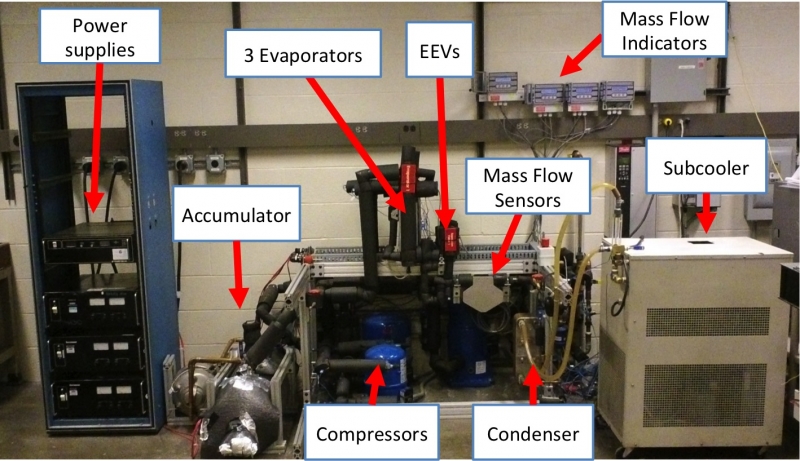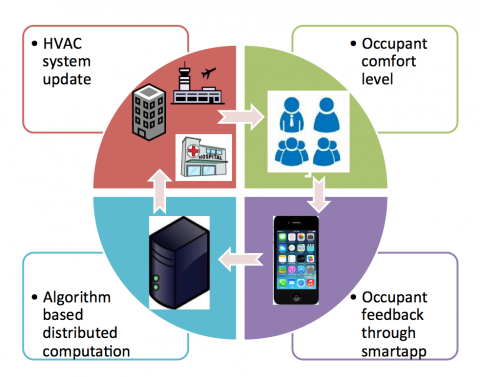
Vapor Compression Cycle Testbed with three parallel evaporators.
Existing vapor compression cycle (VCC) is mostly designed for steady state conditions. For high transient heat flux applications such as electronic cooling, the system could be severely over-designed, resulting in unnecessarily large volume and energy inefficiency. We are conducting research to use a combination of feedback and feedforward control and temperature, mass flow rate, and pressure feedback to achieve high efficiency (characterized by coefficient of performance COP) while avoiding critical heat flux (CHF).
Research Theme:
Heat





